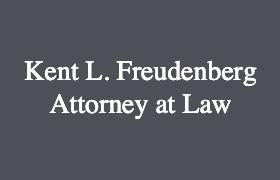Colorado Springs Real Estate Lawyer, Colorado
Sponsored Law Firm
-
 x
x

Click For More Info:
-
Kent L. Freudenberg, Attorney at Law
115 East Las Animas Street Colorado Springs, CO 80903» view mapDivorce & Family Law Competent Legal Representation
Let the law office of Kent L. Freudenberg, Attorney at Law handle all your Divorce & Family Law needs today!
800-881-7201
Terence Edward Doherty
✓ VERIFIEDBusiness, Real Estate, Estate Planning, Litigation, Intellectual Property
Attorney Terence E. Doherty provides knowledgeable, experienced representation while ensuring that clients receive the individual access and personal ... (more)
Kent Lee Freudenberg
✓ VERIFIEDDivorce & Family Law, Real Estate, DUI-DWI
Kent Lee Freudenberg is a practicing lawyer in the state of Colorado.
FREE CONSULTATION
CONTACTMachelle Gielarowski
Social Security -- Disability, Medical Malpractice, Workers' Compensation, Premises Liability
Status: In Good Standing
Catherine Anne Seal
Elder Law, Wills & Probate, Commercial Real Estate, Trusts
Status: In Good Standing Licensed: 29 Years
Matthew James Zendejas
Real Estate, Lawsuit & Dispute, Divorce & Family Law, Business
Status: In Good Standing Licensed: 31 Years
Gordon J. Williams
Commercial Real Estate, Trusts, Estate Planning, Elder Law
Status: In Good Standing
Gordon James Williams
Commercial Real Estate, Trusts, Estate Planning, Elder Law
Status: In Good Standing
Barton L. Enoch
Landlord-Tenant, Estate Planning, Business, Business & Trade
Status: In Good Standing Licensed: 48 Years
 Kent Freudenberg Colorado Springs, CO
Kent Freudenberg Colorado Springs, CO AboutKent L. Freudenberg, Attorney at Law
AboutKent L. Freudenberg, Attorney at Law


